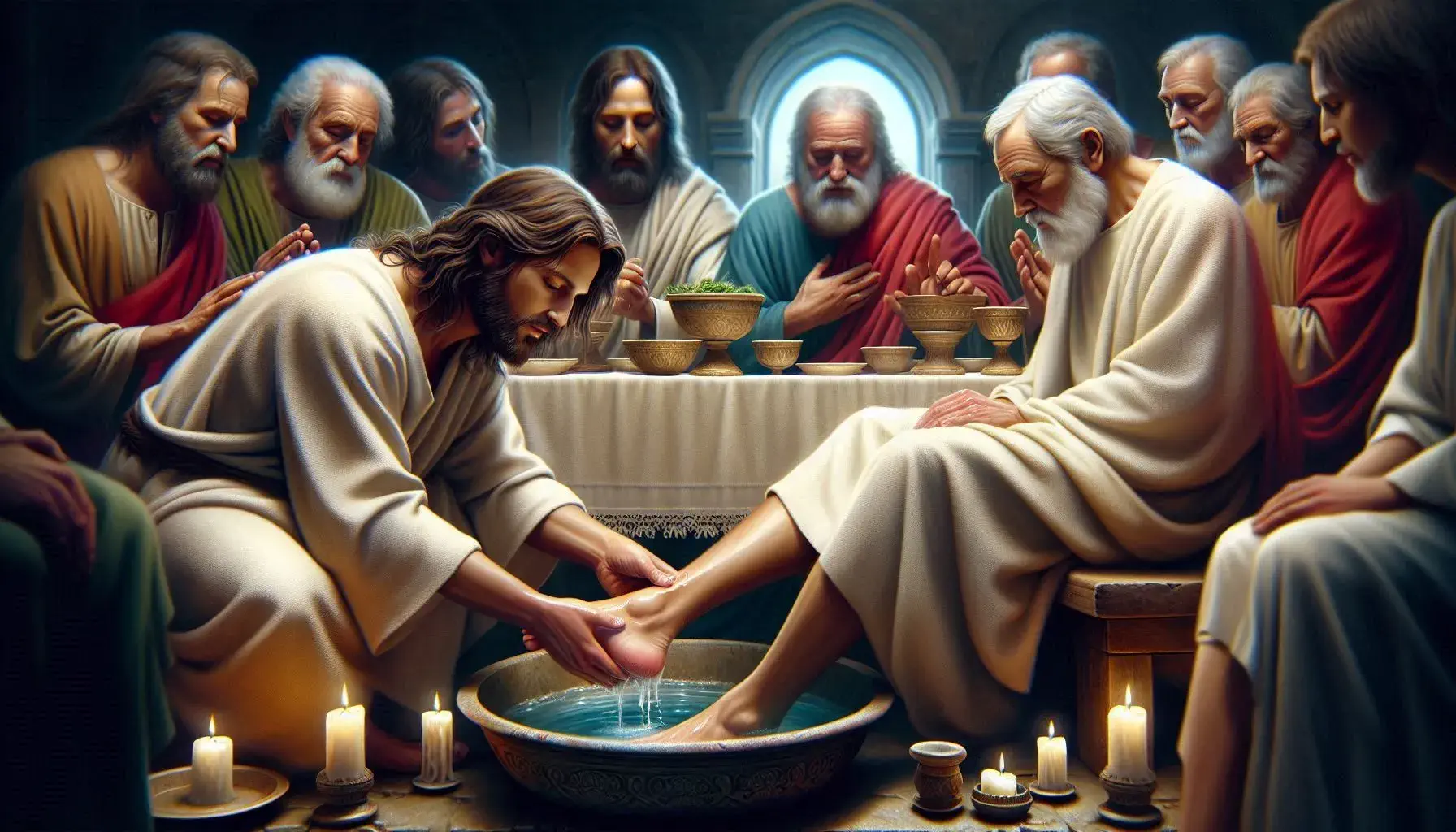Three things are significant about Jesus washing the disciples’ feet in the upper room at the Last Supper. For Jesus, pardoning sinners was an expression of His humility and servanthood. The act of washing the disciples’ feet, for them, revealed a mentality that was diametrically opposed to their inner attitude at the moment. We see washing feet as a metaphor for our place in Christ’s body.
It was essential to wash one’s feet before a community meal in the first century AD since sandals were worn on the roads in Israel. People ate at low tables in a reclined position, and there was no shortage of feet. Jesus was doing the tasks of the lowest servant when He got up from the Last Supper and started to wash the disciples’ feet. The act of humility and condescension displayed by Jesus, their Lord and Master, washing His disciples’ feet must have astounded the disciples. It was more appropriately their duty to wash feet, but no one had offered to help. Jesus is the Suffering Servant of Isaiah 53, not the King and Conqueror who came to earth. He came “not to be served but to serve, and to give his life as a ransom for many,” as He disclosed in Matthew 20:28. Jesus’ last act of humility and love on the cross was hinted at by His gesture of humility with the towel and basin.
Jesus’ demeanor was in stark contrast to the disciples’, who had just been debating among themselves who was the best. They never thought to wash each other’s feet because there was no attendant in the upstairs chamber. They fell silent in shock when the Lord Himself performed this menial chore. Peter objected, saying, “You shall never wash my feet,” since he felt so uncomfortable with the Lord cleaning his feet.
Peter, whose love for the Savior was sincere, asked to be completely washed when Jesus stated something that must have further astonished him: “Unless I wash you, you have no part with me.” Jesus said, “Those who have taken a bath only need to wash their feet; they are already clean throughout.” And some of you are clean, but not all of you. Every disciple had “bathed,” and all were “clean,” with the exception of Judas, who would later betray Him.
So, Jesus’ act of washing the disciples’ feet illustrated their spiritual cleansing. Jesus is the One who forgives. Peter and the rest had experienced the full cleansing of salvation and did not need to be bathed again in the spiritual sense. Salvation is a one-time act of justification by faith. What follows is the lifelong process of sanctification: a daily washing away of the stain of sin. As we walk through the world, some of the world’s spiritual filth will cling to us, and that needs to be washed away – forgiven by Christ. Peter and the other disciples – all except Judas, who never belonged to Christ – needed only this minor cleansing.
We may be certain that Christ’s forgiveness is total and final when we turn to Him for salvation. He humbles Himself to wash away our sins. But just as someone who has recently taken a bath has to sometimes wash his feet, so too do we need to periodically be cleansed of the affects of living in the flesh in a world tainted by sin. This is sanctification, accomplished by the power of the Holy Spirit, who is given to us in order to equip us for all good works, through the “washing of water by the Word.”
Furthermore, Jesus said to the disciples, “I have given you an example, that you should do as I have done to you,” after washing their feet. As His disciples, we are to imitate Him by serving one another with humility and love, and by trying to elevate one another up in both humility and intellect. Forgiving one another is a part of that lowly service (Colossians 3:13). We offend the Lord when we strive for dominance, fail to help others, or withhold forgiveness. Those who have a servant’s heart achieve true grandeur in His kingdom, and they will receive immense blessings.
📌FOR FURTHER STUDY
📖 Deliverance of the Feet: The Mystery of Feet Washing
